The 10 Best Hair Care Tips for Swimmers
Some of the biggest problems swimmers face when it comes to frequent exposure to chlorine and/or sea salts include dry, brittle hair, itchy scalps, and having an unpleasant pool scent on their hair.
In this article, we are going to share with you some tips you can use right away to address all of these issues so your hair can be happy and healthy.
Let’s get started.
#1 Eat a healthy diet

Everything starts with a healthy diet, however, a healthy diet means something different for everybody, there’s no one magical solution that works for everyone but in general, most of us don’t eat enough of the right foods.
Increasing the amount of fruit, vegetables, plants, fish, and healthy fats in your diet helps have healthy hair and a healthy scalp. Talk to your doctor to know more about the kinds of food that you could eat more of to improve your health.
#2 Use a swimmer’s conditioner before getting into the pool

You can use our Pre & Post Swim Conditioner before you swim to provide an additional protective layer around your hair. The ingredients in our formula effectively neutralize the absorption of pool and ocean chemicals to prevent any potential negative side effects.
And if you use it after swimming (when you shower), the Argan Oil and Vitamin B5 in our formula are going to restore your hair’s healthy texture and the Shea Butter and Almond Oil are going to hydrate and soothe dry and brittle hair.
#3 Shower with warm water
Hot water can remove the protective oils we have on our hair leading to dry and brittle hair. Instead, shower using warm water and gently massage your scalp sideways when shampooing to avoid tangling your hair and damaging it further.
Also, by showering before getting into the pool, you’ll supersaturate your hair with freshwater and minimize the amount of chlorinated water that’s absorbed.
#4 Use a swimmer’s shampoo
Using a swimmers shampoo like Trihard’s helps hydrate dry hair after-swimming, removes any unpleasant pool smells, and it relieves potential itchy scalps caused by pool chemicals.
#5 Use a swimming cap

Many people don’t like wearing swimming caps because it feels a bit uncomfortable, however, after a while, you’ll get used to wearing them. It’s important to wear one to reduce exposure to chlorinated water as it can dry and damage your hair.
There are different types of swim caps to choose from, these include:
- Silicone: great for competitive swimmers and people with long hair
- Latex: great for frequent swimmers who like variety
- Rubber: great for swimmers who like to swim in cold water
- Lycra or spandex: great for recreational swimmers who want a comfortable swim cap
- Neoprene: great for open water swimmers
#6 Comb your hair after swimming
When we swim, our hair absorbs a lot of pool water causing it to stretch and making it more prone to breakage. Gently use a wide tooth comb to untangle your hair and remove broken hair strands.
#7 Hydrate your hair
Coconut oil, Argan oil, and Castor oil are commonly used in the beauty industry to help hydrate dry hair. Apply them on your hair after you shower to boost this process. Having said that, if you are already using a swimmers conditioner and/or a swimmers shampoo, you probably won’t need to do this. The ingredients in their formula will likely have one of these oils to rehydrate your hair.
#8 Wash oily hair more frequently

If your scalp is very oily, you may need to wash it as often as once a day and if you have chemically treated hair, your hair may be drier so you may want to wash it every second day or maybe even every third day (when not swimming).
#9 Dry your hair carefully
If you are using a towel to dry your hair, gently dry it to avoid damaging the roots. And avoid twisting your hair as it can get too tight and break off your hair.
#10 Lower your blow dryer’s heat output
Frequent blow drying is bad for your hair as it can lead to hair loss. Thin hair is quite sensitive to damage from heat so lower your hair dryer’s heat output and reduce the frequency of use. Protect your hair before styling by using a conditioner or a heat styling product.
We hope you found this information helpful. If you have any questions about how to protect your hair from chlorine, let us know and we’ll do our best to help.

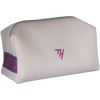
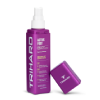


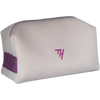
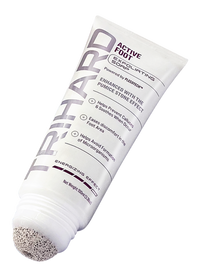



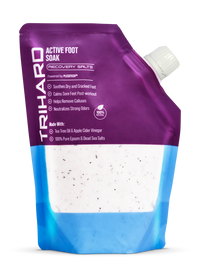




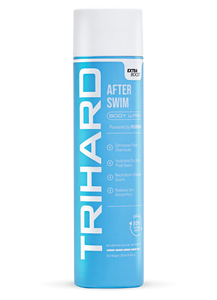
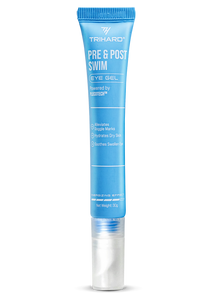


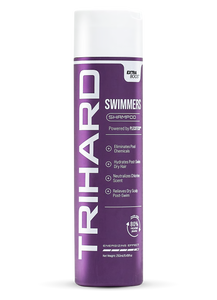









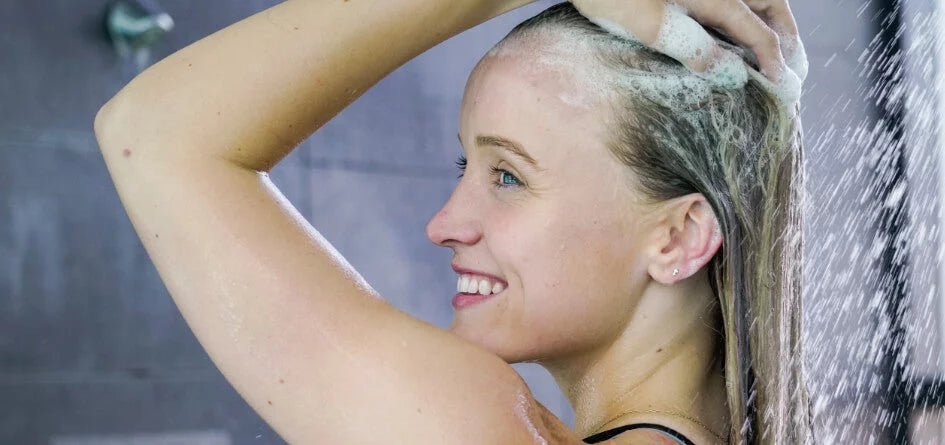
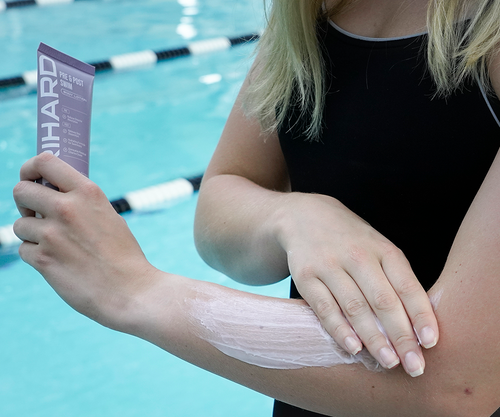

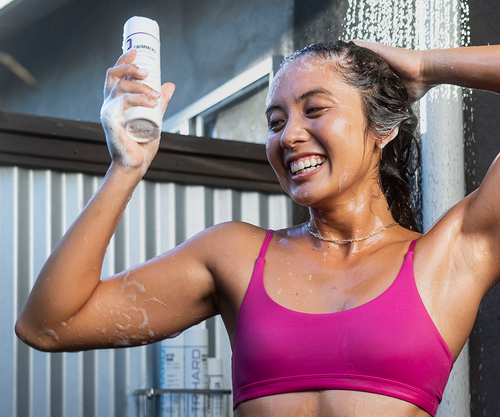
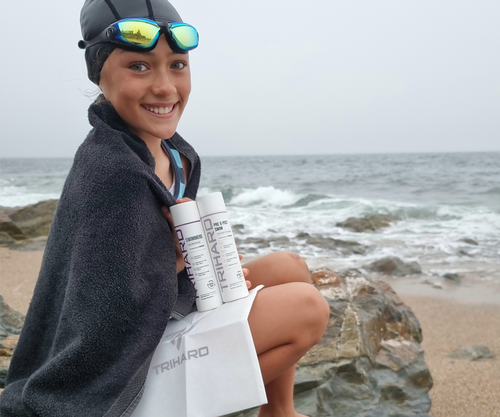
Leave a comment